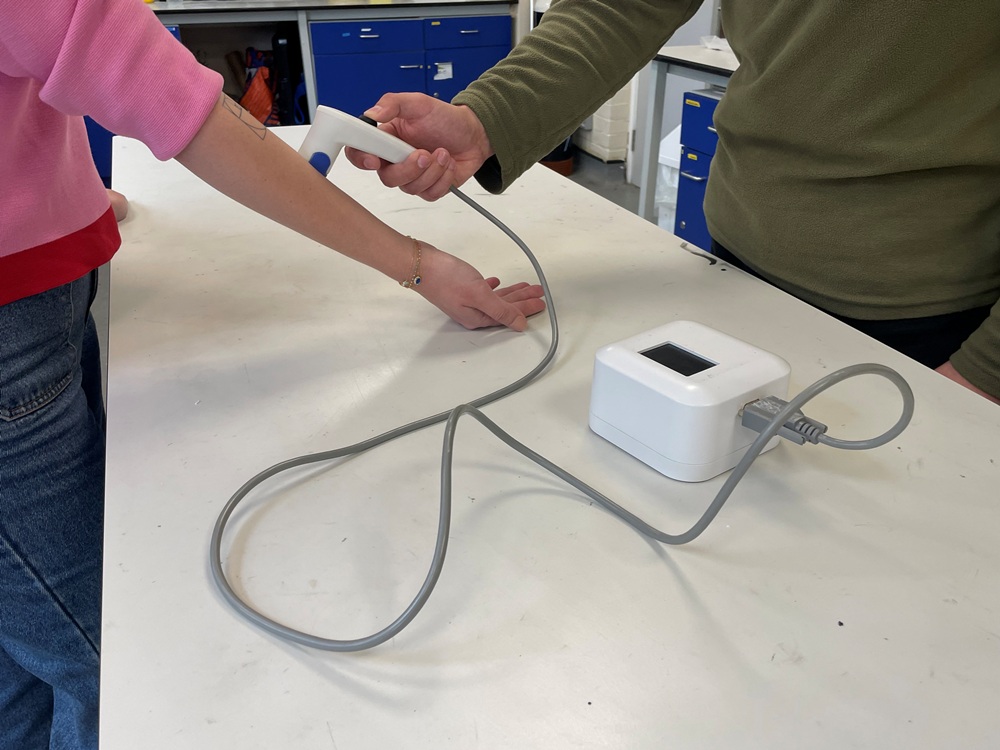Skin sensing technology could transform eczema and psoriasis treatment

An innovative technology developed by researchers in the UK has received over £475,000 in funding to revolutionise how eczema is diagnosed and treated, potentially ending years of suffering for millions of patients across the UK.
The innovative vibroacoustic sensor, which measures material changes in each layer of skin using small vibrations on the surface, has received £275,000 from Scottish Enterprise and just over £200,000 from the Medical Research Council’s Gap Fund to advance clinical testing.
This research will support the development of a Heriot-Watt University spin-out company based on the TissueMetrics project.
TissueMetrics’ solution addresses a critical gap in eczema and psoriasis treatment, where patients currently face a lengthy and frustrating cycle of trial and error with various creams and medications.
Eczema 20 per cent of children and 10 per cent of adults in the UK, costing the NHS approximately £179 million annually in GP visits alone.
Patients who suffer from this also end up spending on average over £500 per year on creams, soaps and moisturisers.
Existing eczema treatment pathways typically involve repeated visits to pharmacies and GPs, while the most severe cases are referred to hospital dermatology clinics.
However, UK waiting times can stretch to 18 months, with some patients waiting years before finding effective treatments.
The research behind TissueMetrics’ sensor is being led by Professor Michael Crichton from Heriot-Watt University’s Global Research Institute in Health and Care Technologies.
Professor Crichton said: “Our technology represents a fundamental shift in how we approach eczema management.
“Rather than relying solely on visual assessments, which haven’t evolved in decades and can be particularly unreliable for patients with darker skin tones, our sensor provides objective measurements of what’s happening beneath the skin’s surface.”
The funding will help accelerate the progress of TissueMetrics, which aims to spin out in 2026 from Heriot-Watt University and supports the UK Government’s plans to move more health treatments into community settings to relieve pressure on hospitals and GPs.
Professor Richard Weller is dermatology lead for NHS Research Scotland and a University of Edinburgh academic based at the Institute for Regeneration and Repair.
Weller said: “This technology has the potential to transform that process by providing quantitative data that can help us identify effective treatments much faster.
“It could enable high-quality dermatological care to be delivered in community settings, dramatically reducing waiting times and improving patient outcomes.
“For dermatologists, it would mean we could focus our specialist skills on the most complex cases, while still providing expert guidance to patients being treated in the community through the objective data their measurements provide.”
The research team will now begin testing the sensor on patients with moderate eczema who are undergoing third or fourth-line treatments.
They will also gather crucial feedback from patients and clinicians on its usability.







